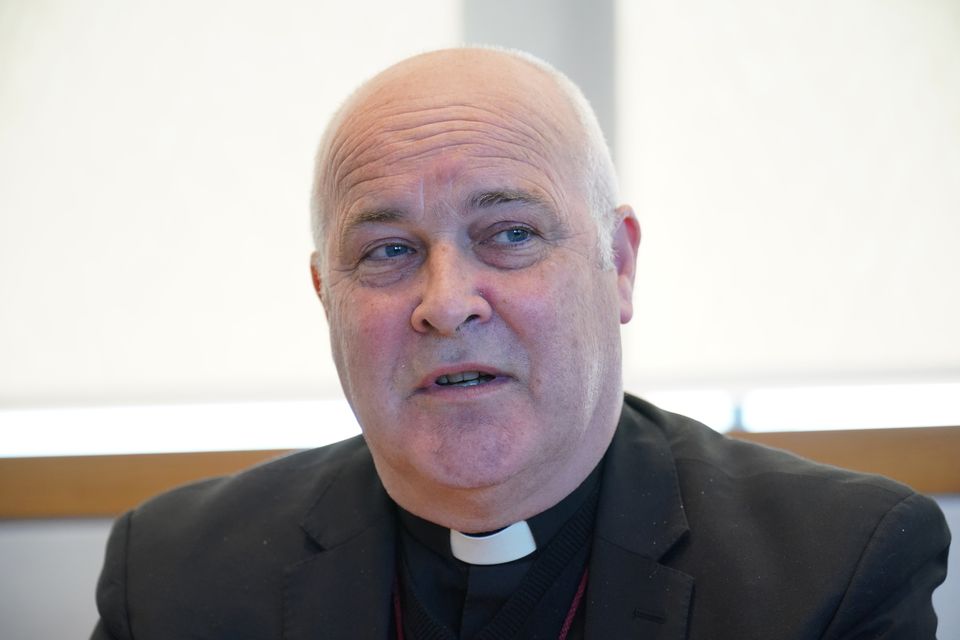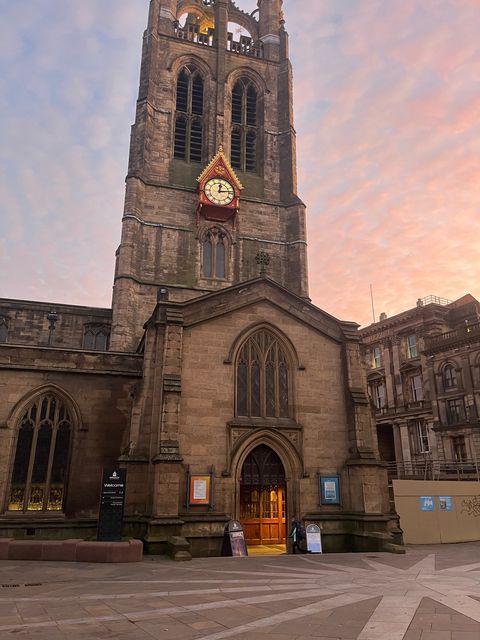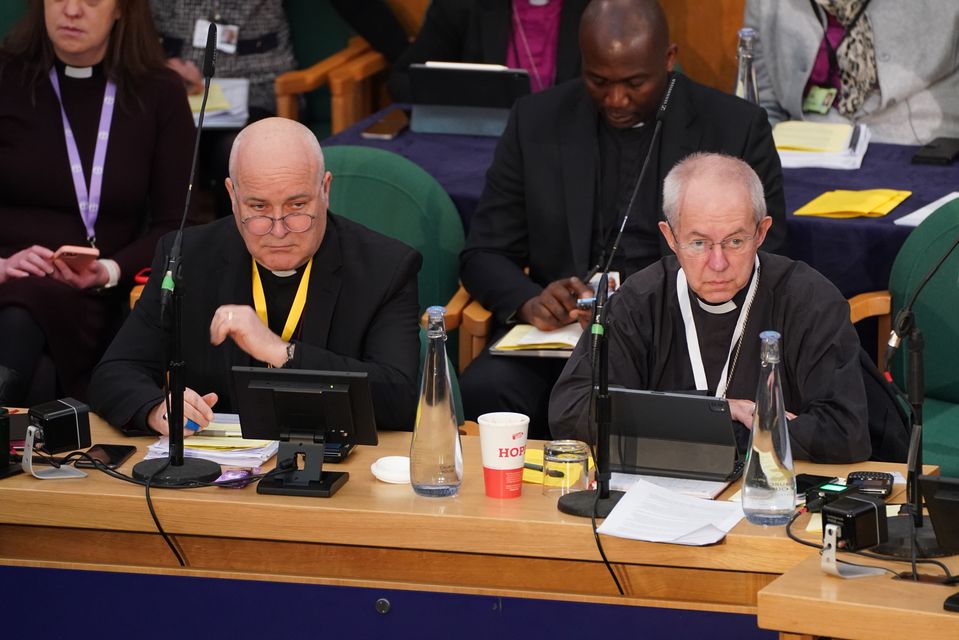The Archbishop of York recognised the “difficult and challenging times” faced by the Church of England as he acknowledged the “anguish, anger, sadness, and regret” of victims and survivors of abuse about safeguarding failings.
Stephen Cottrell opened the General Synod in central London on Monday, speaking in place of Justin Welby who officially left his post as Archbishop of Canterbury in January.
Mr Cottrell has faced his own calls to quit over his handling of a number of alleged abuse cases during his time in the Church but has stood firm in recent months, previously pledging to “do what I can” to bring about independent scrutiny of safeguarding.
Archbishop of York Stephen Cottrell opened the General Synod in London on Monday (Jonathan Brady/PA)
He survived a vote, proposed by a Synod lay member – who argued Mr Cottrell’s position is “no longer tenable”, which would have stopped him from giving the address.
Some 73 Synod members voted in favour, 239 against and 43 abstained – allowing the address to go ahead.
Addressing the Synod – the Church’s parliament – Mr Cottrell said he did not want to pretend “that we are not in difficult and challenging times”.
Adding that action is needed as well as words, he professed his love for the Church but acknowledged there must be change.
He said: “I want to share with you how deeply I believe in and love the Church of England, and I want to tell you about the change that I believe we must make, as well as my part in that change during this coming year.
“However, I am deeply, deeply mindful of the feelings of anguish, anger, sadness, and regret present in this chamber – not least among victims and survivors of abuse and those who valiantly support them, but also among women in our Church who are still victims of discrimination, unwanted touch, and, at times, even sexual assault.”
After beginning his address, Mr Cottrell paused while there was a period of prayerful reflection and silence among those gathered, in an effort to acknowledge the feelings of abuse survivors.
Bishop of Newcastle Helen-Ann Hartley, who was present in the chamber, has been the only bishop to publicly call for Mr Cottrell’s resignation, saying he is “the wrong person” to be leading the Church and that it is inappropriate for him to be in the role and be “leading change that the Church needs at this time”.
Monday is the first day of five days of Synod debate and various votes on issues including safeguarding at Church House in London.
Newcastle Cathedral, seat of the Bishop of Newcastle (Tom Wilkinson/PA)
Mr Cottrell took over most of Mr Welby’s responsibilities when the latter resigned after a damning report concluded prolific serial abuser John Smyth might have been brought to justice had the archbishop formally reported him to police five years before his death.
Mr Cottrell has himself been under pressure in recent months, accused of not acting quickly enough in his then-role as Bishop of Chelmsford over priest David Tudor, who was allowed to remain in post despite having been barred by the Church from being alone with children and having paid compensation to a sexual abuse victim.
He has previously insisted he had inherited a “horrible and intolerable” situation, and “acted immediately” when fresh complaints were made about the priest in 2019, adding that he had “no legal grounds” to suspend him before then.
Separately, Mr Cottrell has also “categorically rejected” allegations that he bullied members of a committee to secure John Perumbalath’s appointment as Bishop of Liverpool.
Mr Perumbalath resigned as bishop last month following media coverage of sexual assault and harassment allegations against him, which he denies.
Ms Hartley said she still feels like a lone voice in public discussion of the leadership of the Church, noting that a colleague was reported as having described her as the “bishop of negativity”.
Archbishop of York Stephen Cottrell and then-Archbishop of Canterbury Justin Welby at a Synod in 2023 (James Manning/PA)
An advocate for abuse survivors has called on Mr Cottrell and other senior leaders in the Church to show “radical humility”, as the handling of abuse cases once again comes under the spotlight during debate this week.
Ahead of Mr Cottrell’s address, Andrew Graystone, who wrote a book on Smyth’s abuse, said “another hand-wringing apology” will not do.
He told the PA news agency: “Many of the leaders of the Church of England are still woefully unaware of what abuse is, and what it does to victims. It is no longer credible for the Archbishop to say ‘We made this mess, but we are the only people who can fix it’.
“No-one wants another hand-wringing apology, no-one wants another ‘lessons learned’ review, no-one wants another reminder of how hard it is to be a bishop.
“We don’t want any more words at all. Instead, we want radical humility from the Archbishop downwards.


